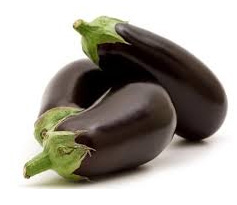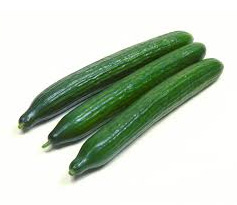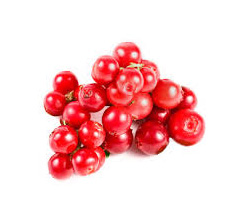70 Superfoods to Add to Your Menu Now!
FOOD See all FOOD postsSuperfoods are natural sources of antioxidants and essential nutrients – nutrients that we need but cannot make ourselves. Incorporating them in your diet will not only help maintain your weight but benefits also your health and beauty. That’s why you may consider adding them to your many today. Here is a list of 70 Superfoods, you should add to your menu and a summary of the benefits they give you.
1. Vinegar 
Research has shown that vinegar can reduce the blood-sugar spiking effect of a meal, which has been linked to satiety, resulting in reduced food intake. If you feel more satisfied, you eat less. But vinegar may also prevent body-fat accumulations, according to an animal study done by Japanese researchers in 2009. In that study, mice were fed acetic acid, the main component of vinegar, for six weeks; this suppressed the accumulation of body fat in the animals.
2. Mustard 
It can help you lose weight and slows aging. Mustard seeds are packed with B-complex vitamins like folates, niacin, thiamine, riboflavin etc. which are great in speeding up your metabolism, leading to weight loss. Mustard is also a great source of carotenes, zeaxanthins and lutein, vitamin A, C and K. All these components put together make it rich in antioxidants which in turn slows the ageing process.
3. Hot Peppers 
Hot peppers like habaneros, jalapenos, and chipotles can also help you lose weight. They contain capsaicin which provides several benefits related to losing weight. Recent research is showing that they also may help you in preventing stomach problems like ulcers by killing the bacteria responsible.
4. Brown rice 
Brown rice is a heartier, fiber-packed alternative of white rice. It contains resistant starch, that boosts metabolism and burns fat. Brown rice is also low-energy-density food, meaning it’s heavy and filling but low in calories. One study found that women who ate a higher-energy-density diet gained three times as much weight over six years than women eating a low-energy-density diet.
5. Sweet corn 
Sweet corn is a good source of phenolic flavonoid antioxidant, ferulic acid. Several research studies suggest that ferulic acid plays vital role in preventing cancers, aging, and inflammation. It also contains good levels of some of the valuable B-complex group of vitamins such as thiamin, niacin, pantothenic acid, folates, riboflavin, and pyridoxine. Many of these vitamins function as co-factors to enzymes during substrate metabolism. It also contains healthy amounts of some important minerals like zinc, magnesium, copper, iron, and manganese.
6. Arugula 
With very few calories and great in taste Arugula is also a great source of folic acid and Vitamins A, C and K. As one of the best vegetable sources of Vitamin K, it is good for your bone and brain health. Arugula has high levels of Iron and Copper, which makes it a good substitute of spinach.
7. Pears 
Just one pear provides you with 15 percent of your daily recommended amount of fiber. One study found that women who ate three pears a day consumed fewer calories and lost more weight than those who didn’t. The skin of the pear full of all that filling fiber!
8. Figs 
Raw and dried figs are a good source of dietary fiber and the essential mineral, manganese. They are used as a treatment for sexual dysfunction, constipation, indigestion, piles, diabetes, cough, bronchitis, and asthma. As well as a quick and healthy way to gain weight back after suffering through an illness.
9. Garlic 
With a history of human use of over 7,000 years, garlic has been present in the kitchen of many Ancient nations. In Ancient Egypt it has been used for both culinary and medicinal purposes. A 2013 meta-analysis concluded that garlic preparations may effectively lower total cholesterol by 11-23 mg/dL and LDL cholesterol by 3-15 mg/dL in adults with high cholesterol if taken for longer than two months. It is high in a sulfur compound called Allicin, which is believed to bring most of its health benefits. It is rich in manganese, Vitamin B6, Vitamin C, selenium and decent amounts of calcium, copper, potassium, phosphorus, iron and Vitamin B1.
10. Romaine Lettuce 
The Romaine lettuce is a perfect base for your daily salad and it benefits your heart. It contains protein and omega-3 acids wich are typically found only in meat and fish. It is also rich in vitamins and minerals that makes it well worth eating on a regular basis. The Vitamin C and beta-carotene it contains work together to prevent the oxidation of cholesterol, which when oxidized, becomes sticky and starts to build up in the artery walls forming plaques.
11. Raisins 
Raisins are loaded with tons of benefits like giving you a burst of energy, and even helping to treat infections. But be careful because in raisins there’s more sugar than in grapes, it’s easier to eat too many raisins and get a sugar rush and subsequent crash. Raisins are a part of a diet for athletes or body builders who need powerful boosts of energy or for those who want to put on weight without accumulating unhealthy amounts of cholesterol. The vitamins, amino acids and minerals in raisins, such as selenium and phosphorus facilitate absorption of other nutrients and proteins in the body. Raisins also stimulate the efficient absorption of other proteins, vitamins, and nutrients gained from food, which improves your overall energy and immune system strength.
12. Peas 
Peas are always available and super easy to make, especially if you buy them frozen or canned. They help us with things like glucose levels, heart disease, regularity, and even bone health due to the Vitamin K, that they contain.
13. Nectarines 
Nectarines are not only very tasty but also rich in beta-carotene and Vitamin C. They contain also lutein, which is the antioxidant that can help prevent all sorts of diseases, including cancer. It is important to vary up your diet and include nectarines and other healthy foods daily.
14. Kimchi 
This is a staple in Korean cuisine, and Korean newspapers ran pieces on how it is believed that kimchi was responsible for stopping the spread of SARS throughout the country. Whether or not that was the case, it’s still a beneficial addition to most meals. The most common way it is prepared is with fermented cabbage. It is thought to help aid in digestion the same way that sauerkraut does, by providing digestive enzymes to help us break down the foods we eat more easily.
15. Honey 
Honey can help you prevent things like cancer and heart disease, it can also help regular blood glucose levels. Try adding a teaspoon of honey and the juice of half a lemon to a cup of hot water in the morning. It can make a great replacement for a cup of coffee, and can prepare your digestive system for the work ahead of it for the day.
16. Grapefruit 
Many times grapefruit is given to heart patients after surgery. It’s also listed on many fad diets as a way to lose weight quickly. Even if you changed nothing else about your diet, eating half a grapefruit before each meal may help you lose up to a pound a week! It’s also been shown to help prevent the onset of arthritis as well as keeping cholesterol levels low, it can lower insulin, a fat-storage hormone, and that can lead to weight loss. It can even help get you through the common cold.
17. Eggplant (or Aubergine) 
Eggplant is very easy to prepare as a side dish. Aside from helping you out with your weight loss efforts, it can help you avoid cancer and give your skin a healthier glow. It’s a food that is tasty and easy to incorporate into your regular menu.
18. Cucumbers 
Cucumbers are a good source of water, and they help to rehydrate your body in a different way than drinking a glass of water does. When preparing them you might consider leaving the skin on, since it’s rich in Vitamin C. They are an excellent source of vitamin K, molybdenum, pantothenic acid, copper, potassium, manganese, vitamin C, phosphorus, magnesium, biotin, and vitamin B1. They also contain the important nail health-promoting mineral silica.
19. Cherries 
Like nearly all of the superfoods on this list, cherries hit on multiple levels. They can help improve your memory, as well as having a substantial amount of beta carotene. Cherries support healthy sleep, as they’re a natural source of melatonin. They also contain powerful antioxidants like anthocyanins and cyanidin. If you want to reduce your belly fat, cherries can help you with that too.
20. Apricots 
Apricots are rich in dietary fiber, vitamins, minerals, and packed with numerous health promoting phyto-chemicals. They have antioxidant properties and are also good for your vision, due to the high beta-carotene usually attributed to carrots. Their other great quality is that they taste great, which makes them a welcome addition to the range of fruits that you eat.
21. Zucchini 
Zucchini is considered a nutrient-rich powerhouse for your body because it is packed with so many beneficial nutrients including vitamins A, C, potassium, folate, and fiber. Zucchini is one of the very low calorie vegetables. It provides only 17 calories per 100 g and contains no saturated fats or cholesterol. Its peel is good source of dietary fiber that helps reduce constipation and offers some protection against colon cancers.
22. Watermelon 
Besides how tasty it is, watermelon contains a lot of water to keep you hydrated. This refreshing fruit is soaked with nutrients. Each juicy bite has significant levels of vitamins A, B6 and C, fiber lots of lycopene, antioxidants and amino acids. There’s even a modest amount of potassium.
23. Tomatoes 
Lycopene, which makes tomatoes red in color, is the most beneficial nutrient in tomatoes that can help protect against prostate, lung, colon, and breast cancers. Tomatoes emit more benefits when they are cooked, so try and make tomato sauces and other cooked tomato forms part of your daily diet.
24. Strawberries 
Filled with anti-inflammatory antioxidants and phytochemicals these berries help eliminate cancer cells in the body. Due to the vitamin C contained in them they boost immunity, promote eye health, keep wrinkles away and fight bad cholesterol.
25. Salmon 
Salmon is one of the best sources for omega-3 fatty acids as well as good fats that help you retain healthy levels of cholesterol, which is beneficial for heart health. Salmon is also rich in protein, vitamin D, and calcium to help keep the rest of your body healthy.
26. Radishes
This red root vegetable contains antioxidants that aid in digestion. Due to their high volume of vitamins, radishes also help to regulate and stabilize your blood pressure. Radishes are very good for the liver and stomach they are also very filling, which means that they satisfy your hunger without running up your calorie count.
27. Pomegranate 
The powerful antioxidants, as well as ellagic acid and punicalagin found in pomegranates fight off free radicals from damaging your skin. Pomegranate is also rich in dietary nitrates, which have been shown to improve exercise performance.
28. Oranges 
Vitamin C—the main nutrient in oranges—is known for boosting your immune system. But, what you may not know is that this vitamin also helps to lower and level out stress hormones. The phytonutrients in oranges in combination the vitamin C they contain have significant antioxidant properties.
29. Olive Oil 
Olive oil is rich in healthy monounsaturated fatty acids which are necessary for keeping your heart healthy. These good fats can also help stabilize your blood pressure and cholesterol levels. The kind of olive oil with the most health benefits is extra virgin, so make sure you add it to your diet.
30. Oats 
Oats contain more than any other grain dietary fiber, that reduces LDL in your body—also known as bad cholesterol. The potential health benefits of oats include also: reducing the risk of coronary artery disease, reducing risk of colorectal cancer and they may also help lower your blood pressure.
31. Mushrooms 
The antioxidants in many types of mushrooms make this fungus a powerful food to boost your immune system and protect against illness. Of all fruits and vegetables, mushrooms are the only source of Vitamin D. Mushrooms are rich in antioxidants. A study at Penn State university showed also that the antioxidants, contained in crimini and portobello mushrooms were about the same as in red peppers. They also help the body metabolize fats and protein, thanks to the vitamin B2 (riboflavin) and vitamin B3 (niacin) contained in them.
36 recipes with mushrooms under 350 kcal – http://fatorwhat.com/mushroom-recipes-under-350-kcal/
32. Lemon 
This citrus fruit is loaded with vitamin C making it a nutritional powerhouse when it comes to taking care of your immune system. Lemons contain pectin fiber which is very beneficial for colon health and also serves as a powerful antibacterial. It helps maintain the pH levels in your body, it strengthens the liver and is also used for the common cold and flu, H1N1 (swine) flu, ringing in the ears (tinnitus), Meniere’s disease, and kidney stones.
33. Kiwi 
Kiwi is considered an energy fruit due to its large amounts of magnesium. It contains twice the amount of vitamin C as an orange, so it is great for getting your daily dose of vitamins. This fruit contains more potassium than a banana and more fiber than a bowl of bran cereal.
34. Jalapeños 
Jalapeños are beneficial for their high counts of vitamin C. With more than your daily dose in one pepper, adding them to your diet is a great way to bust your cold and keep your immune system strong.
35. Grapes 
The antioxidants in grapes are not only super healthy for you, they are also responsible for helping to eliminate free radicals, which are responsible for damaging and aging your skin cells. Other health benefits of grapes include also their ability to treat constipation, indigestion, fatigue, kidney disorders, macular degeneration and the prevention of cataracts.
36. Goji Berries 
These powerful, antioxidant, and vitamin C-enriched berries have anti-inflammatory properties. Goji Berries are the most nutritionally dense fruit on Earth, they have the highest concentration of protein of any fruit. They have been used for thousands of years in Tibet and China, both as a culinary ingredient and medicinally. Goji Berries contain 15 times the amount of iron found in spinach, as well as calcium, zinc, selenium and many other important trace minerals. Reduce bloat and other inflamed areas of the body by adding a handful of these into your daily diet.
37. Cranberries 
Reverse the effects of aging by eating vitamin-rich cranberries. These tart berries—fresh, dried, or juiced—have anti-inflammatory properties and reduce the likelihood of disease. In disease-fighting antioxidants, cranberries outrank nearly every fruit and vegetable, including strawberries, spinach, broccoli, red grapes, apples, raspberries, and cherries.
38. Brussels Sprouts 
The lutein contained in Brussels sprouts is one of the most important nutrients that helps fight aging and deterioration of vision. These sprouts are high in fiber, antioxidants, vitamins and they’re surely worth a place in your healthy diet menu.
39. Black Currants 
Containing more vitamin C than oranges, blackcurrants are a fantastic immunity-booster and can help you with the spring fever. The nutrient-rich and high antioxidant content helps your vision as well.
40. Beans 
The high fiber content in beans makes them the optimal choice for relieving bowel issues. All beans—kidney, white, black– are healthy and helpful to add into your diet for the additional benefits of protein and iron.
41. Bananas 
Bananas are famous for their large amounts of potassium. They are good for your blood pressure – maintaining a low sodium intake is essential to lowering blood pressure, however increasing potassium intake may be just as important because of its vasodilation effects. The probiotics in bananas along with its fiber also help your gut heal and digest, eliminating the bloat that can build up in your stomach.
42. Asparagus 
The large amounts of vitamin K in asparagus promote healthy bones and vitamin A helps maintain organ health. There are also antioxidants in asparagus that aid in preventing and healing free radicals that damage our skin. Asparagus is also a very good source of fiber, folate, vitamins C and E, as well as chromium, a trace mineral that enhances the ability of insulin to transport glucose from the bloodstream into cells.
43. Artichokes 
This superfood contains a lot of fiber to activate your system and flush out any toxins, aiding tremendously in the digestion process. Adding artichokes into your meals frequently also helps prevent and lower the risk for heart disease.
44. Apples 
This fall fruit does more than making a pie taste good. Apples have high fiber and flavonoid content, which coupled with significant amounts of vitamin C, makes them great for boosting your immune system during the fall and winter months. A new study performed on mice shows that drinking apple juice could keep Alzheimer’s away and fight the effects of aging on the brain. Another research has shown that people who eat fruits and other high-fibre foods gain a certain amount of protection against Parkinson’s. Women who eat at least one apple a day are 28 percent less likely to develop type 2 diabetes than those who don’t eat apples.
45. Almonds 
Packed with vitamin E, fiber, and omega-3 fatty acids, these nuts lower cholesterol and make sure your heart is healthy. In addition, monounsaturated fats in almonds make them a suitable snack, that can increase the likelihood of weight loss.
46. Red Wine 
Red wine, made with the dark skin and seeds of grapes, is rich in polyphenols, a type of antioxidant that includes resveratrol – a natural plant compound, which has antioxidant and inflammatory properties. Research shows that it can prevent blood clots and inhibit the growth of cancer cells. Other studies show it may have a positive impact on longevity. Resveratrol has also been shown to have very powerful cancer-fighting properties and to inhibit lymph, liver, prostate, stomach and breast cancers.
47. Eggs 
Rich in iron and vitamin B12—both nutrients essential for producing and maintaining energy in the body—eggs give your body a burst of energy while also keeping you full due to high amounts of protein. Egg yolks are rich in nutrients, including minerals like calcium and magnesium and vitamins A, D, E, B6, B12. In fact, eggs are loaded with so many nutrients that some scientists suggest a few eggs a day could provide a bigger health insurance policy than a multivitamin. They have 100% of the carotenoids essential for healthy eyes, protecting them against vision loss.
48. Lingonberries 
With 30% more antioxidant power than blueberries, these Scandinavian berries do not only help fight cancer and diabetes, but are also a natural antibiotic – and they can prevent bad cholesterol from damaging your arteries, which help avoid heart attacks and stroke. Studies have also shown lingonberries can lower inflammatory molecules, block oxidants from destroying tissue and help the body replace important antioxidants, which we need to protect vessels and nerve tissue and to reduce potential damage from inflammation.
49. Chia Seeds 
Rich in antioxidants, vitamins, minerals and fiber, this super seed also contains 500% more calcium than milk and the same amount of omega-3 fatty acids as wild salmon. Chia is the seed that used to grow the “fur” on Chia Pets. So, if your hair is feeling a little lackluster, adding some chia seeds to your diet may help! It also has an appetite-suppressing quality, helping you feel full – this makes chia seeds an ideal food for reaching your weight-loss goals – especially for stress eaters!
50. Acai berry 
According to the Mayo Clinic, These grape-like berries derived from Amazonian palm trees in the rainforest are being labeled a cancer-fighting super food that can destroy leukemia cell types, assist with weight loss, erectile dysfunction, detoxification, and improving general health.
51. Flaxseed 
Flaxseed is rich in omega-3 fatty acids, which speed up cell metabolism and reduce inflammation in the body, reducing triglyceride levels and lowering blood pressure. Besides alpha-linolenic acid (omega-3), they are also rich of micronutrients, dietary fiber, manganese and vitamin B1. Flax is one of the oldest fiber crops in the world – known to have been cultivated in ancient Egypt and China.
52. Dark Chocolate 
According to Dr. Aviva Romm, President of the American Herbalists Guild, the high antioxidant levels make it a perfect indulgence. Chocolate is high in flavonoids, substances that have been shown to lower your blood-pressure naturally, suppress coughs, improve memory, give you hydrated, smooth skin and even make you happier. Cocoa contains hundreds of compounds that boost endorphins and serotonin, two of the best-known chemicals responsible for making us happy.
53. Green Tea 
Green tea is very rich in protective antioxidants. It’s full of a metabolism-boosting compound called EGCG, which prevents damage to the heart muscles. Green tea may also improve bone density, but avoid adding milk to is, as it may reduce the body’s absorption of the catechins.
54. Walnuts 
Of all nuts, walnuts contain the most alpha-linolenic omega-3 fatty acids, which lower LDL (bad) cholesterol and may reduce inflammation in arteries. Walnuts are also a great source of antioxidants, vitamin E, selenium, magnesium, copper, and omega-3 fatty acids. Besides their proven ability to reduce stress naturally, they are just super healthy for you!
55. Sesame Seeds 
These tasty seeds contain unique lignans (or plant compounds), including sesamin and sesamolin, which can help lower cholesterol. Sesame seeds are a good source of calcium, phosphorus, and zinc—as well as copper, which research suggests may help maintain strong bones. They are also great for high-protein vegetarian diet.
56. Sardines 
Wild-caught sardines are low in mercury (unlike some types of tuna) and high in vitamin D. A three-ounce serving has as much calcium as a cup of milk. Even better, they’re one of the Monterey Bay Aquarium’s top picks for sustainability. The nutrients found in sardines are responsible for the health benefits of sardines, which include the prevention of heart diseases, certain types of cancers, and age-related macular degeneration. They help in bone strengthening, building the immune system, insulin resistance, and rejuvenation of the skin.
57. Yogurt 
Besides a very good source of calcium, phosphorus, and protein, yogurt contains good bacteria in the form of probiotics that cleanse the gut and helps improve your digestive system. Lactobacillus casei, boosts immune response. Just make sure that when you buy yogurt it is high in protein and low in sugar. Greek and Bulgarian yogurts are a good option.
58. Cinnamon 
With one of the highest antioxidant levels of all herbs and spices, cinnamon is a great addition to your cup of cereals for breakfast. It also has a positive effect on blood glucose levels, so it can help keep you feeling steady and satiated.
59. Oregano 
Used in medicine and cooking for thousands of years, oregano is so rich in antioxidants, that a half teaspoon of dried oregano has the same nutrition benefits as a spinach salad. It has the ability to act as an expectorant, clearing congestion, and can also improve digestion.
60. Turmeric 
Used in holistic medicine as a digestive aid and wound healer, this Indian spice is a powerful superfood and can also serve as an anti-inflammatory. It contains cancer-fighting antioxidants and is also linked to helping improve memory and fighting against diseases like Alzheimer’s. It is a primary ingredient in the curry.
61. Spelt 
Like whole wheat, ancient spelt is sweeter, nuttier, and higher in protein than its processed relatives. It is also a good source of manganese and copper. It contains a wide range of nutrients, including complex carbohydrates, sugar, soluble and insoluble fiber, sodium, vitamins, minerals, fatty acids, amino acids, it is high in vitamin B2, niacin, manganese, thiamin, copper, and magnesium. Because spelt is highly water soluble, these nutrients are easily absorbed by the body. In addition to being loaded with essential nutrients, Spelt is a good source of dietary fiber, which has been shown to lower total and LDL cholesterol levels.
62. Quinoa 
High in magnesium, B vitamins, fiber, and manganese and loaded with protein, these grains keep you feeling fuller longer. Quinoa also has a lot of fiber and iron making it good for your digestive system. It is also gluten-free and is recommended for people who are on a gluten-free diet.
63. Spinach 
Spinach as well as other dark, leafy vegetables, as kale and swiss chard are extremely beneficial to your entire body. Spinach is an excellent source of iron (especially important for women), protein, vitamin A, calcium, and lutein for eye health. Dark greens (including seaweed) are rich in omega-3 fatty acids, this is why they’re concentrated in fish.
64. Blueberries 
Fresh or frozen, blueberries have very high levels of antioxidants, which minimize inflammation they are also rich in vitamin C and potassium. Anthocyanins, the natural plant compounds that give blueberries their deep color, may have antidiabetic effects as well. And new research suggests blueberries might protect the heart muscle from damage.
65. Broccoli 
Broccoli contain sulforaphane, which may increase enzymes that lower the incidence of colon and lung cancers. They are also a great source of vitamin C, and good for your digestive system. If you cook it by steaming, broccoli can also provide you with some cholesterol-lowering benefits.
66. Sweet Potatoes 
Sweet potatoes contain phytonutrients that promote heart and eye health and boost immunity. They are loaded with beta-carotene (thought to lower breast cancer risk), vitamin A (which may reduce the effects of smoking and helps prevent wrinkles) and a powerful antioxidant.
67. Horseradish 
Glucosinolate-rich horseradish fights cancer and kills bacteria. It’s also a good source of calcium, potassium, and vitamin C, which, among other things, helps maintain collagen.
68. Beets 
The pigment betacyanin, which gives beets their distinctive hue, is just one of several disease-fighting phytonutrients found in this root vegetable. Beets are also a good source of folate, which guards against birth defects, colon cancer, and osteoporosis, and are high in fiber and beta-carotene.
69. Avocados 
Avocados do not only contain the best kind of fat (monounsaturated oleic acid) but also help your body block the absorption of bad fats (cholesterol) and improve the heart health simultaneously. They have high content of lutein, which if eaten on a regular basis helps your vision. Avocados are also rich in potassium and folate, which may reduce the risk of stroke and cardiovascular disease. And they’re low in pesticides.
70. Ginger, Cayenne, Black Pepper 
These spices contain respectively gingerols, capsaicin, and piperine – compounds that boost metabolism. They also have an aphrodisiac effect, but avoid consuming them if you’re bothered by hot flashes. These spices are can also help you with pain. Piperine in black pepper can trigger TRPV1 (transient receptor potential vanilloid type-1) in the body, which can reduce pain. In one study, 150 women were instructed to take 1 gram of ginger powder per day, for the first 3 days of the menstrual period. The Ginger managed to reduce their pain as effectively as the drugs as mefenamic acid and ibuprofen.












